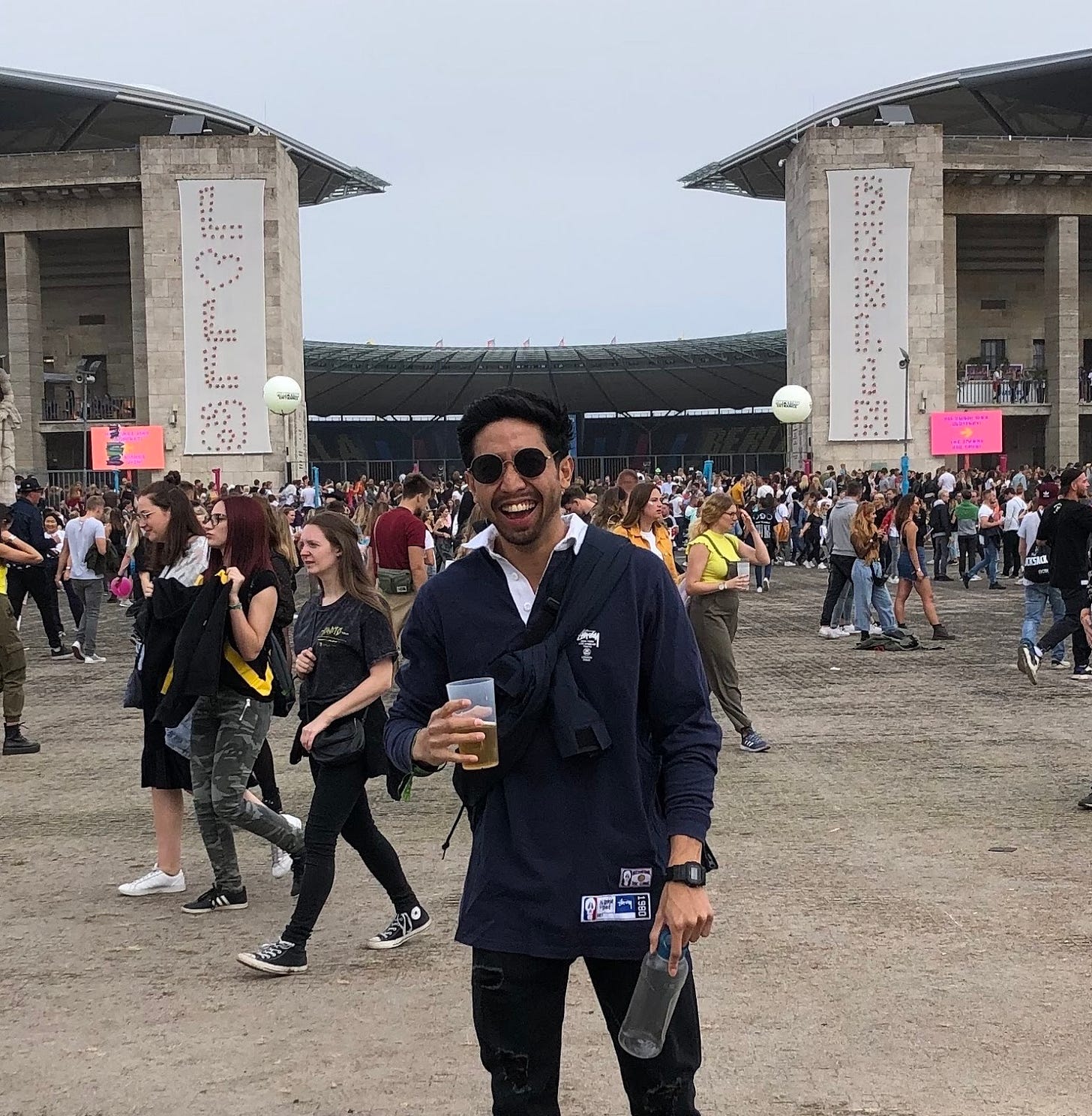👴🏻 The Lollapalooza effect: applying Charlie Munger's theory in sustainability
What is Lollapalooza. Social proof. Rewards and punishment. Deprival superreaction.
This is essay 2 of 4 essays for 1729 Writers Cohort #2.
TLDR: A combination of psychological biases can be applied to drive sustainable behaviour.
I recently reread the book Poor Charlie’s Almanack, a book of wisdom from Charlie Munger, Warren Buffet’s partner at Berkshire Hathaway. What a great book, one of the most recommended books around.
In the book, Munger explained a psychological theory called the Lollapalooza effect. Before reading it, I only know Lollapalooza as an alternative music festival which I also attended in Berlin back in 2019.
Young & innocent me at Lollapalooza
Only from the old wise Munger (now 98 years old!), I learned the deep meaning behind Lollapalooza. So here is my learning on Lollapalooza effect and how it can be applied to drive sustainable behaviour
🎉 What is the Lollapalooza effect
Let’s start with some definitions. The Mirriam Webster dictionary defined Lollapalooza as “one that is extraordinarily impressive, or an outstanding example”.
Munger explored the term further with his own definition:
“Several psychological biases that happened at the same time and sway our behavior one way or another toward a particular action.”
He explained that there are 25 psychological biases or human behaviours such as rewards and punishment, curiosity, social proof, over optimism, liking or hating, and many others.
Source: The Nomad Investor
If these biases are combined, it will create a lollapalooza effect. Either a large success or a devastating failure. As he explained from his investing experience, it either makes you rich or kicks you out of the game.
The lollapalooza effect means that the sum of all parts is greater than each part individually. With this logic, 1 + 1 does not always equal 2, it could be multiplied into 4, 11, or more.
From my layman’s understanding, it is similar to why the Fantastic four are great as a group, but not on their own. Or my favorite childhood band, Blink 182, is much better when Tom, Mark, and Travis are playing together as a band rather than their side gig (Angels & airwaves, Plus 44, Transplants).
Source: CMQ Investing youtube channel
Regardless of how smart one might be, humans are not rational beings. Whatever our role we play in life, life partner, investors, customers, or activists, we tend to fall into one of these biases in making decisions. Hence, Munger suggests using these biases as a checklist, to use for our benefit and not fall into misery.
To practice using these biases and create a positive lollapalooza effect, I am doing a thought experiment with something that I deeply care about, which is sustainable behavior.
🤝 Social proof
Definition: We do things because others are doing it. Group think. Herd behaviour.
Sustainable behaviour: Walk the talk. If more leaders, teachers, and parents do their part to behave sustainably such as minimize unnecessary consumption and conserve energy, more people will follow. Social consensus is more powerful than scientific papers.
💰 Rewards and punishments
Definition: Both rewards (e.g. money, likes) and punishment (e.g. extra tax, social pressure) drive biased behaviour. Our brains evolved to chase rewards and avoid punishments.
Sustainable behaviour: In most cases, punishment is used to disincentivize people harming the environment such as fines for polluting or jail sentences for illegal logging. Not saying that this does not work, but we could also leverage rewards systems. Either financially such as the bottle refund system in Germany. Or socially such as on chain credentials for positive contribution (e.g. POAP, Gitcoin passport).
🔎 Deprival Superreaction
Definition: It felt worst losing something that is visible than the ones that are hidden (e.g. $100 stolen from a wallet > 5% decrease in a $100,000 investment). Similar to the loss aversion theory from Daniel Kahnemann.
Sustainable behavior: We are touched to see endangered big animals on the other side of the planet (e.g. polar bears), but do not care about the bees that play a huge role in our local environment. We want to plant more trees in the mountain but ignore the seagrass that can absorb carbon up to 50x faster.
Conclusion
These are just some examples. Understanding and combining psychological biases can drive more sustainable behaviour. And create a positive lollapalooza effect on the environment.
The success of Munger and Buffet in Berkshire Hathaway is based on diligence and perseverance compounded over a long period of time (>50 years).
We can also apply this learning to make public policies, business decisions, and consumer choices that will provide a sustainable environment for our grandchildren in the next 100 years.
Thanks for reading this article and enjoy the weather ☀️.






great, and new insights! about Lollapalooza,
I know well, Daniel Kahneman is one of the economists who I adore, with his book "Behaviour economics as a winner nobel prize. thank you Mas tulisannya.